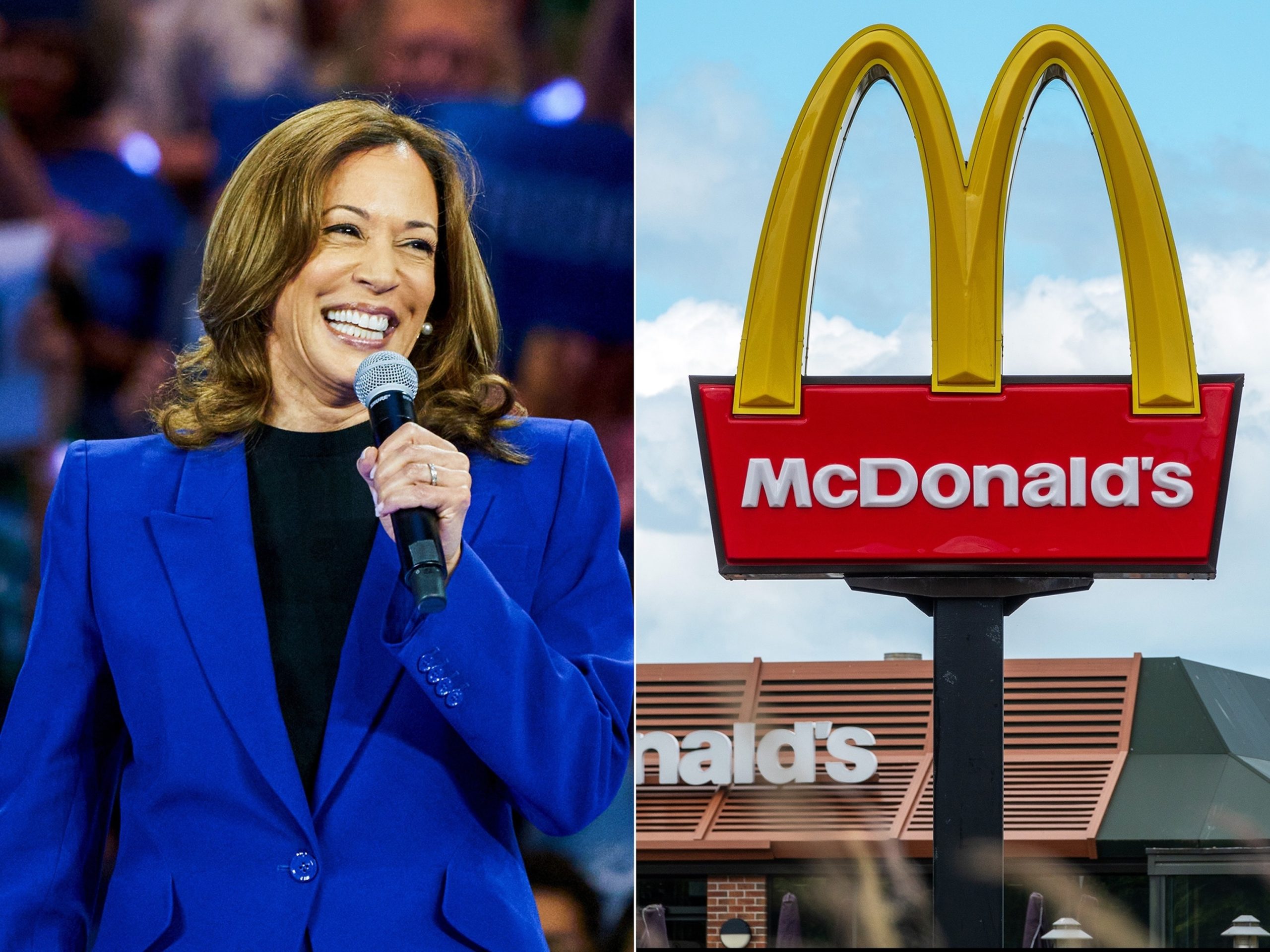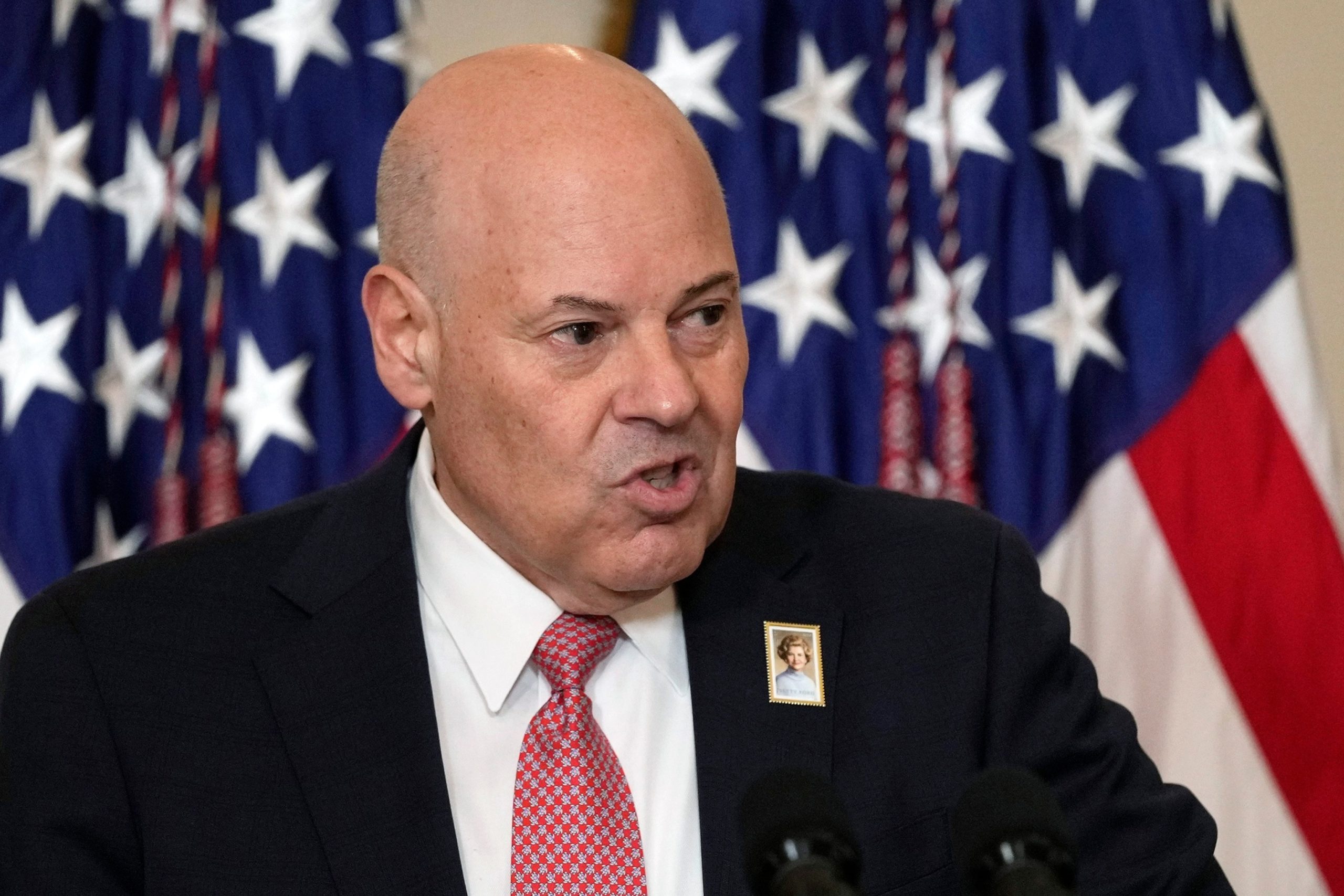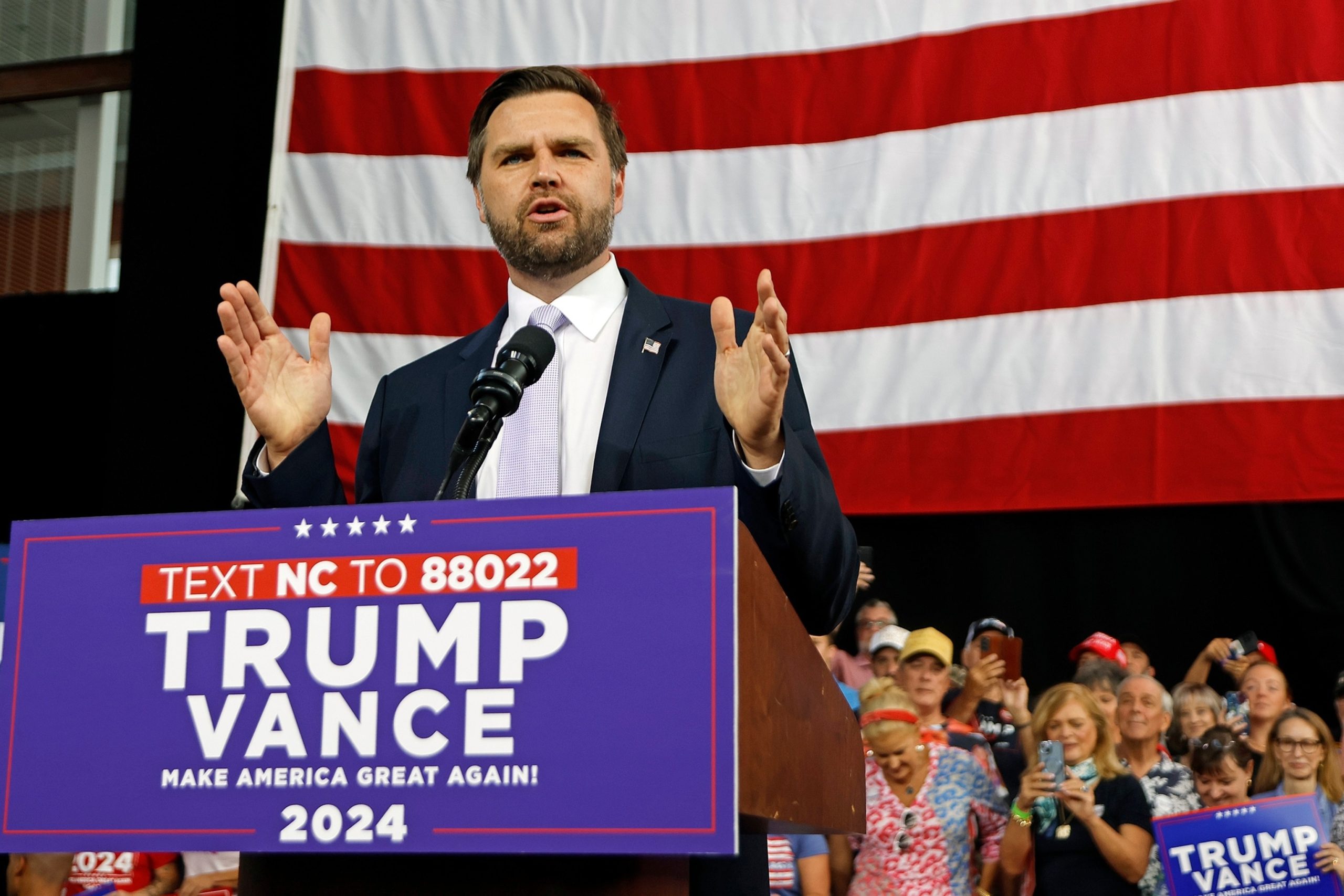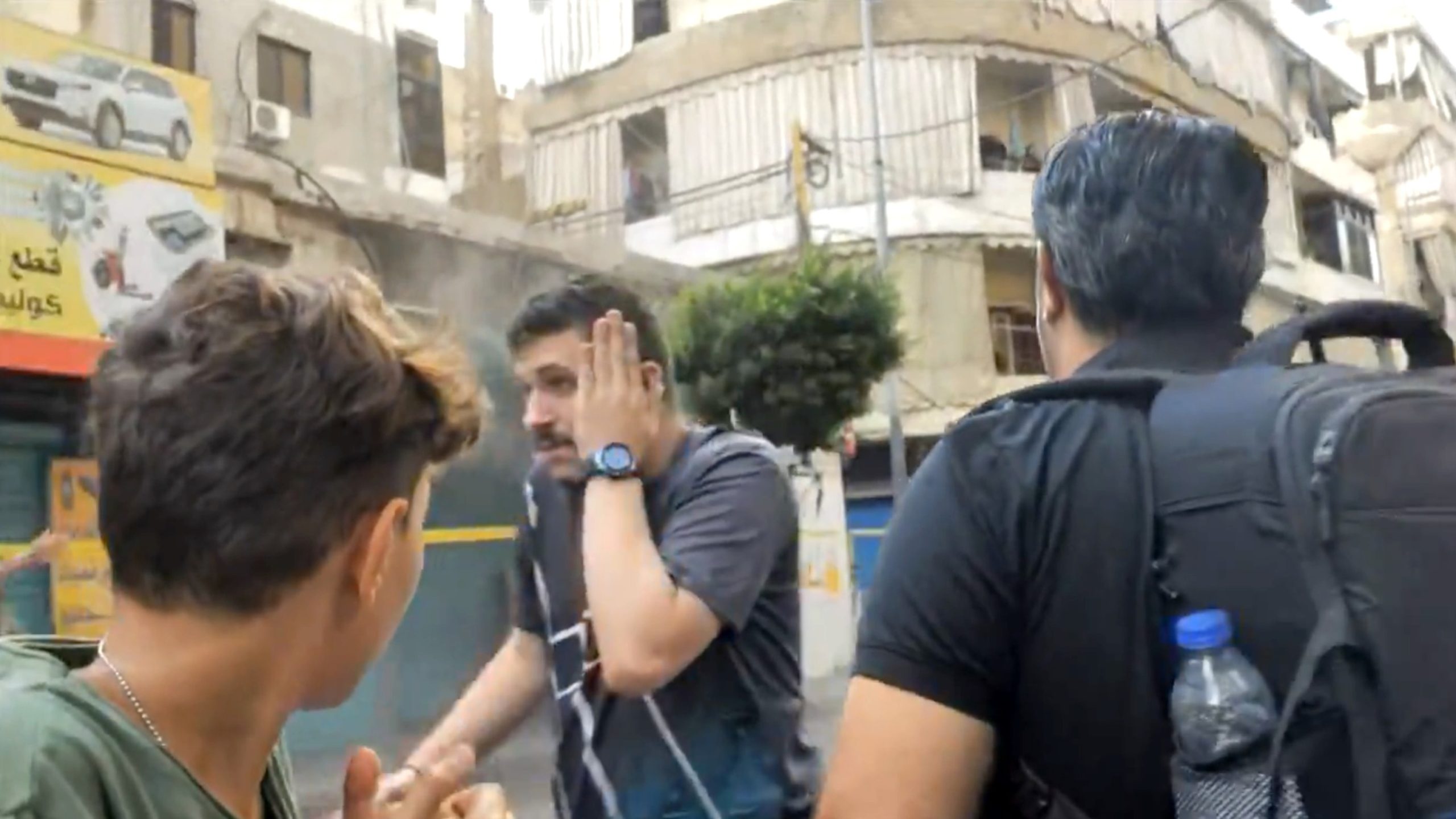A McFlurry of speakers at the Democratic National Convention have mentioned Vice President Kamala Harris’ work at the burger chain, and her campaign hopes working-class Americans are lovin’ it.
Harris has noted in the past and now in campaign ads that she worked a summer job at McDonald’s in her late teens, between her freshman and sophomore years at Howard University in Washington, D.C.
Her early job is a common one among Americans, according to data from the chain which says one out of every eight Americans has worked at McDonald’s.

Vice President Kamala Harris speaks during a campaign event at Fiserv Forum in Milwaukee, Wisconsin, on Aug. 20, 2024. | In this May 15, 2024, file photo, a McDonalds sign is shown.
Bloomberg via Getty Images | Getty Images
The giant burger chain did not immediately respond to ABC News’ request for comment.
Harris and Walz have pointed out that their working-class roots are in sharp contrast to former President Donald Trump’s much wealthier upbringing. Walz took a dig at a campaign event a few weeks ago, claiming that Trump wouldn’t be able to cut it as a fast-food worker.
“He couldn’t run that damn McFlurry machine if it cost him anything,” he said.
Texas Rep. Jasmine Crockett took a jab at the DNC.
“Let’s compare their resumes, shall we?,” she said. “One candidate worked at McDonald’s while she was in college at an HBCU, [Howard University]. The other was born with the silver spoon in his mouth and helped his daddy in the family business.”
The McDonald’s connection has extended to second gentleman Doug Emhoff, who not only worked there but also was named employee of the month, which he proudly recounted to the convention crowd, telling how the experience had helped shape his career.
“I still have the framed picture which you just saw, and there was a ring, golden arches and all. And then, I waited tables, parked cars. I was working full-time, so I could afford to go to college part-time. And thanks to partial scholarships, student loans, and a little help from my dad, I got myself through law school, and I got my first job as a lawyer,” he said.
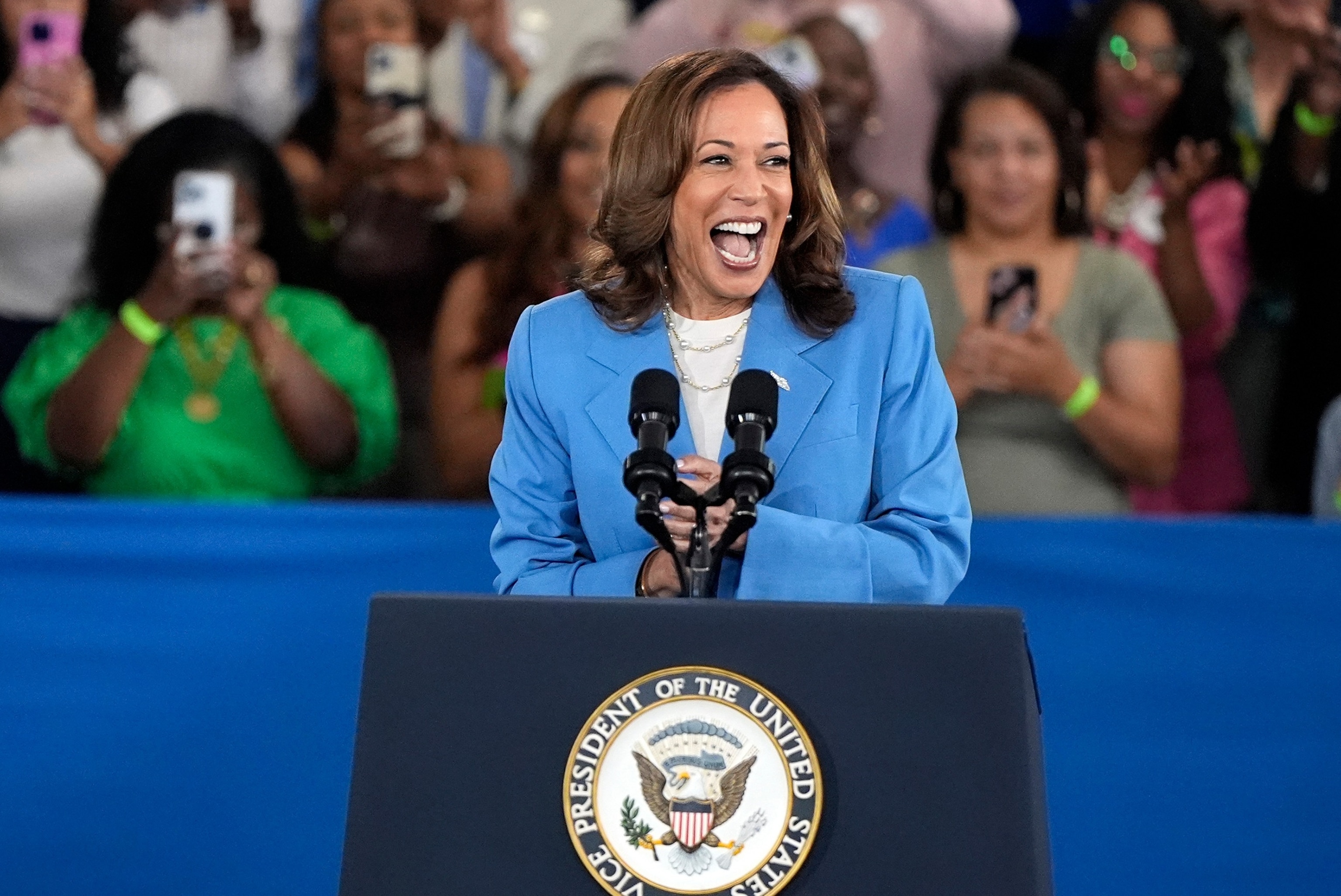
Vice President Kamala Harris speaks at a campaign event at Hendrick Center for Automotive Excellence on the Scott Northern Wake Campus of Wake Tech Community College in Raleigh, N.C., Aug. 16, 2024.
Mike Stewart/AP
Harris’ time behind the fast-food counter has even impressed one of the most famous — and notoriously frequent — McDonald’s customers, former President Bill Clinton, mocked in “SNL” skits as stopping there while jogging in Washington and eating other customers’ fries.
“She greeted every person with that thousand-watt smile and said, ‘How can I help you?’ Now she’s at the pinnacle of power and she’s still asking, ‘How can I help you?'” Clinton said at the DNC Wednesday night.
“I’ll be so happy when she actually enters the White House as president because she will break my record as the president who spent the most time at McDonald’s,” he joked.
It’s unclear whether Harris herself will bring up her McDonald’s experience during her nomination acceptance speech on Thursday night, but it could very well become something she can say she has in common with working-class voters on the campaign trail.
During the Democratic National Convention and on the campaign trail, Vice Presidential nominee Kamala Harris shared a personal experience from her past working at McDonald’s as a young woman. This anecdote shed light on her working-class background and resonated with many Americans who have also worked in low-wage jobs to make ends meet.
Harris, who is the daughter of immigrants from Jamaica and India, worked at a McDonald’s in high school to help support her family. She has often spoken about how this experience shaped her understanding of the struggles faced by working-class families and informed her commitment to fighting for economic justice.
At the DNC, Harris shared how she would wake up before dawn to make it to her shift at McDonald’s on time, and how she would come home late at night after working long hours. She talked about the challenges of balancing work, school, and family responsibilities, and how she saw firsthand the impact of low wages and lack of benefits on workers and their families.
Harris’s story resonated with many Americans who have also worked in fast-food or other low-wage jobs. It highlighted the importance of raising the minimum wage, providing paid sick leave and healthcare benefits, and creating opportunities for workers to advance in their careers and earn a living wage.
On the campaign trail, Harris has continued to share her McDonald’s experience as a way to connect with voters and demonstrate her commitment to fighting for working-class families. She has proposed policies to raise the minimum wage to $15 an hour, expand access to affordable healthcare, and invest in job training and education programs to help workers succeed in the changing economy.
Harris’s working-class background and her experience at McDonald’s have helped to humanize her and make her relatable to voters from all walks of life. By sharing her personal story, she has shown that she understands the struggles faced by millions of Americans and is committed to fighting for a more just and equitable society.
